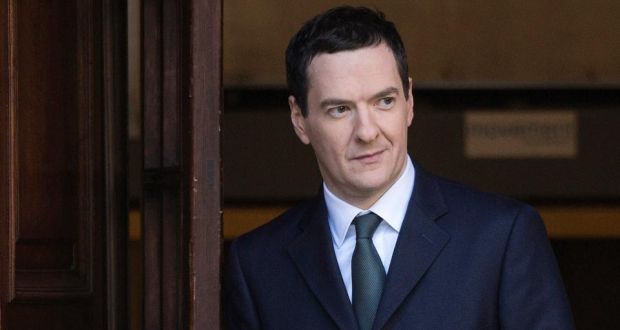
 U.K. Chief Treasury George Osborne has revealed on Wednesday during his autumn statement that the banks will pay an extra 4 billion pounds ($6.3 billion) in taxes over the next half decade due to the announced changes.
U.K. Chief Treasury George Osborne has revealed on Wednesday during his autumn statement that the banks will pay an extra 4 billion pounds ($6.3 billion) in taxes over the next half decade due to the announced changes.
Mr Osborne has claimed it to be “totally unacceptable” that “some banks would not pay any tax for 15 or 20 years” because of the amount of so-called deferred tax assets they hold on their balance sheets.
The new policy plans to raise about £3.5bn in extra tax from the banks during the next five years.
The chancellor has stated: “The banks got public support in the crisis and they should now support the public in the recovery. I am limiting the amount of profit in established banks that can be offset by losses carried forward to 50 per cent and delaying relief on bad debts.”
The move is also likely to impact international banks currently operating in Britain and described as “unexpected and significant” by an EY director, Jonathan Richards.
Mr Richards has told: “It is likely to represent a significant additional cash tax cost for the banking sector over the next few years.”
The five largest banks in Britain: Lloyds Banking Group, HSBC, Barclays , Royal Bank of Scotland (RBS) and Standard Chartered , have more than 17 billion pounds of borrowings on their books on which tax is deferred, however, a part of which also includes overseas assets subject to local tax rules.
Within U.K., RBS had 2.4 billion pounds of deferred tax assets at the end of 2013, Barclays had 499 million, HSBC had 255 million and Standard Chartered 110 million. Lloyds did not give a separate figure for Britain but has 5 billion pounds of deferred tax assets in total, the majority of which are in U.K.
An Investec analyst Ian Gordon has indicated: “Lloyds appears to be the most affected.”
The government also told to have asked Britain’s financial regulator to consider asking banks to ensure and enable customers over switching lenders in five working days, quicker than the present deadline of seven day. The move aims towards increasing the pace of competition within the industry.
After the announcement, the shares market showed a brief fall in shares of the four of the five biggest U.K. banks. The shares in Lloyds fell by 1.2 per cent, Barclays were lowered by 0.6 per cent, HSBC were declined by 0.4 per cent and RBS were 0.1 per cent lower during the evening. Only the shares of Standard Chartered witnessed an upward trend and increased in value by 1.5 per cent.
Article viewed on Oye! Times at www.oyetimes.com.

Be the first to comment